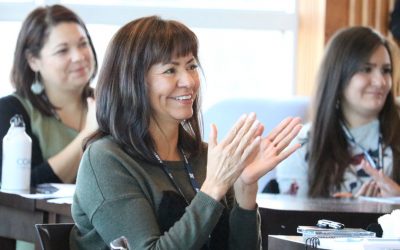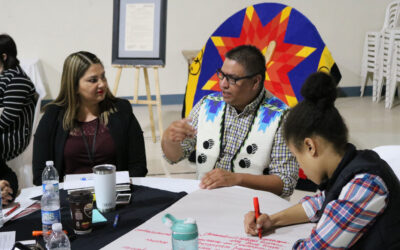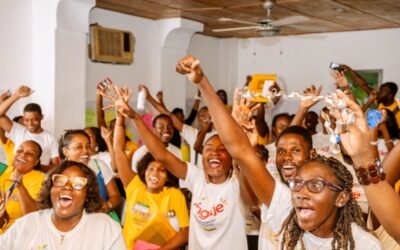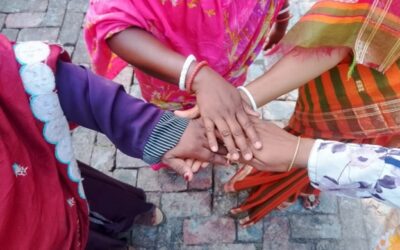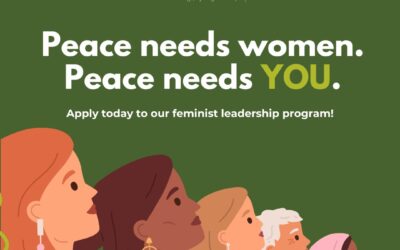Coady Institute is based in the traditional unceded territory of the Mi’kmaq people. It is one of the few educational organizations in Canada that has specific and focused niche programming for leadership and community development for Indigenous communities locally and globally. For 60 years, we have been engaging with emerging and established Indigenous leaders from across Canada and developing countries around the world.
Coady Institute promotes sustainable, practical and culturally respectful approaches to development practice. We engage Indigenous facilitators and program staff to lead this vital work and involve advisors, Mentors and Elders in program design and delivery. We invite key Indigenous leaders and experts to engage in dialogues with our participants, as well as the STFX and surrounding communities. Informed by the UN Declaration on the Rights of Indigenous Peoples (UNDRIP), the recommendations from the Truth and Reconciliation Commission in Canada and the establishment of the Sustainable Development Goals, our work supports and equips Indigenous leaders as they bring about the changes they want for themselves and their communities.
Programs
Indigenous Women in Community Leadership
May 1 - October 11, 2024Indigenous Women in Community Leadership (IWCL) 2024May 1 - October 11, 2024 May 1 - 15, 2024: Online Learning Component June 5 - 19, 2024: In-person, 1st Residency, Coady Institute June 20 - September 30, 2024: In-community Engagement...
Building on Abundance in Indigenous Communities
September 11 - October 22, 2023 Applications have closed Online delivery Applications for this course are open to First Nations, Métis, and Inuit participants.This course is online. You will need reliable internet access (high speed is recommended). This seven-week...
Workshops
Indigenous Approach to Asset-based, Community-driven Development (IABCD): Principles, Methods & Tools for Practice
These workshops, open to First Nations, Métis, and Inuit participants residing in Canada, will provide an Indigenous approach to community-driven development and include the introduction of practical and straightforward community-building tools.
You will be able to bring these tools back to your community/organization and immediately implement them. The workshops will introduce you to IABCD principles, methods and tools for community-driven actions.
For further information, click here.
Projects and Partnerships
Further Education Society of Alberta – Going the Distance Project
Led by FESA, Coady provides support to this unique and innovative project that addresses the under-representation of Indigenous populations in the labor force by supporting businesses in the Tourism and Hospitality industry. The GD project helps develop a better understanding of workplace Literacy and Essential Skills (LES) needs and then design solutions to address these needs. Coady graduates are involved in the design and delivery of Asset-based Community Development workshops for Indigenous communities involved and other adult education supports as needed.
For more information, see: https://www.furthered.ca/going-the-distance
Nobel Women’s Initiative – Sister-to-Sister Mentorship Program
Coady Institute is pleased to partner with Nobel Women’s Initiative on their Sister-to-Sister Mentorship Program. Each year the program brings five grassroots young women activists from around the world to Ottawa, Canada for six weeks of hands-on communications and advocacy training. The Sister-to-Sister Mentorship program has supported young women activists from Sudan, South Sudan, Liberia, Burma, Mexico, Honduras and Guatemala. These young women are at the forefront of movements to promote peace, justice and equality in their communities. Since 2016, Coady has provided support for a young Indigenous woman activist from a First Nations, Métis or Inuit community to participate in the program. Cohorts come to Coady for a one-week leadership workshop during the Program.
For more information, see: https://nobelwomensinitiative.org/category/sister-to-sister/
Pembina Institute – Applying an energy-focused Asset Based Community Development framework in remote Indigenous communities
The Pembina Institute in partnership with the Coady Institute is engaging with selected remote Indigenous communities in Canada to develop and evaluate a new approach to community engagement that combines the internationally recognized Asset Based Community Development (ABCD) framework with community energy planning processes. The goal is a new hybrid framework for energy planning and economic development that identifies and mobilizes the often unrecognized strengths and assets in a remote Indigenous community. We will explore if this more advanced framework, with its roots in international development, can facilitate deeper connections and community engagement resulting in successful clean energy and diesel reduction projects. Coady graduates and their communities are involved in this project.
For more information, see: https://www.pembina.org/
In the News
ENGAGE: Increasing women’s participation in Haiti with Assuntha Fleurant (CLE)
Assuntha Fleurant of le Centre Haitien du Leadership et de l’Excellence (CLE) says Engage has been “one of the best experiences” and that witnessing the accomplishments of women through the program has been “inspiring.”
Sharing our Voices through Photography: Women’s Experiences with the Engage Program in Bangladesh
On a recent trip to Bangladesh, Engage project manager Eric Smith met with representatives of CCDB and travelled to the country’s Southwestern region to visit some of the project’s sites and speak with some of the 400 women involved in Engage. The women participated in a photovoice exercise, which provided them with the opportunity to take pictures that assisted in explaining their stories and narratives.
Now Open: 2024 Sister-to-Sister Program
The Nobel Women’s Initiative (NWI) has opened applications for the 2024 Sister-to-Sister feminist peacebuilders leadership program. Women are indispensable in peacebuilding though historically overlooked and marginalized in formal peace processes. This understanding,...
